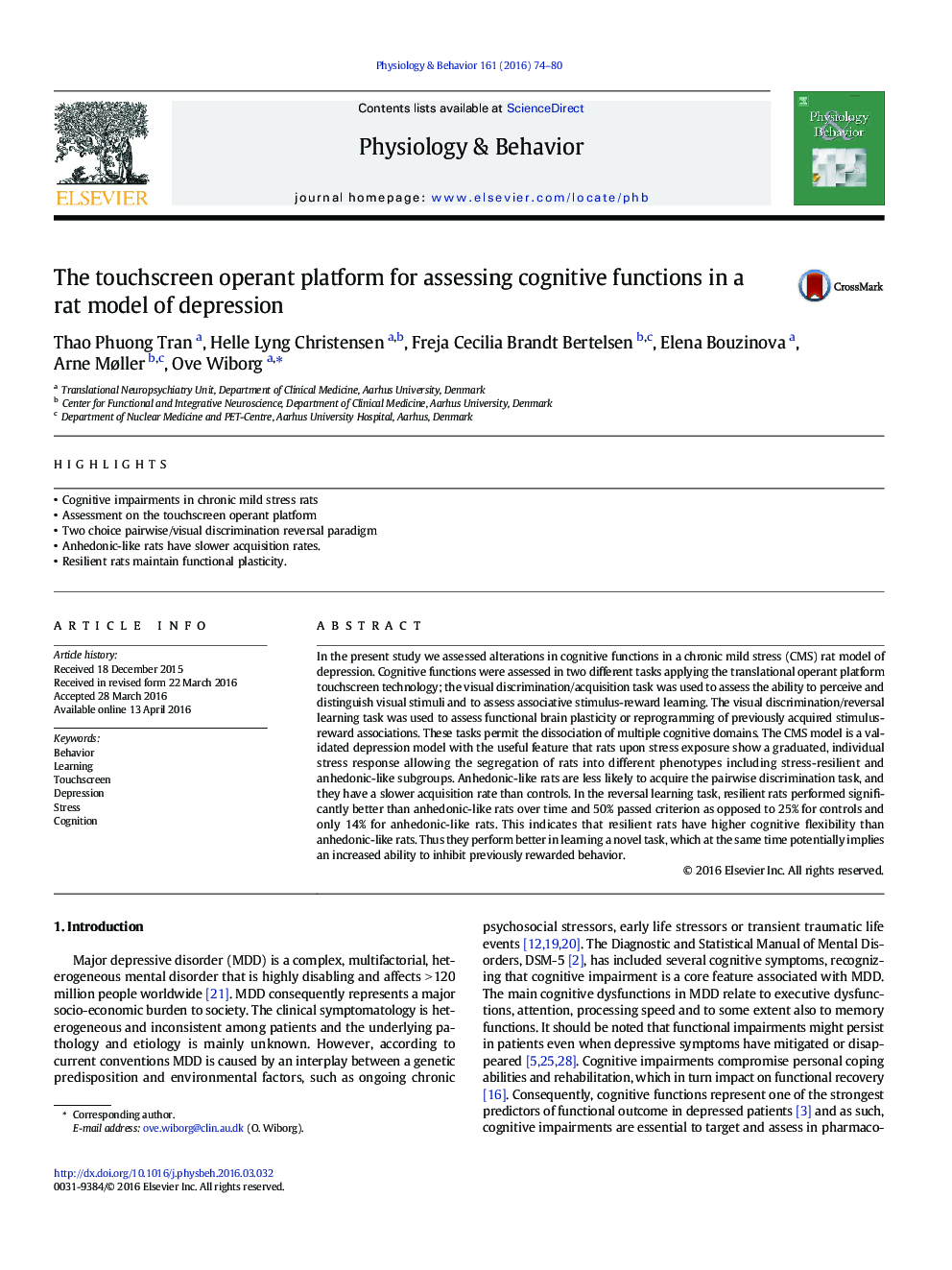| Article ID | Journal | Published Year | Pages | File Type |
|---|---|---|---|---|
| 2843876 | Physiology & Behavior | 2016 | 7 Pages |
•Cognitive impairments in chronic mild stress rats•Assessment on the touchscreen operant platform•Two choice pairwise/visual discrimination reversal paradigm•Anhedonic-like rats have slower acquisition rates.•Resilient rats maintain functional plasticity.
In the present study we assessed alterations in cognitive functions in a chronic mild stress (CMS) rat model of depression. Cognitive functions were assessed in two different tasks applying the translational operant platform touchscreen technology; the visual discrimination/acquisition task was used to assess the ability to perceive and distinguish visual stimuli and to assess associative stimulus-reward learning. The visual discrimination/reversal learning task was used to assess functional brain plasticity or reprogramming of previously acquired stimulus-reward associations. These tasks permit the dissociation of multiple cognitive domains. The CMS model is a validated depression model with the useful feature that rats upon stress exposure show a graduated, individual stress response allowing the segregation of rats into different phenotypes including stress-resilient and anhedonic-like subgroups. Anhedonic-like rats are less likely to acquire the pairwise discrimination task, and they have a slower acquisition rate than controls. In the reversal learning task, resilient rats performed significantly better than anhedonic-like rats over time and 50% passed criterion as opposed to 25% for controls and only 14% for anhedonic-like rats. This indicates that resilient rats have higher cognitive flexibility than anhedonic-like rats. Thus they perform better in learning a novel task, which at the same time potentially implies an increased ability to inhibit previously rewarded behavior.
